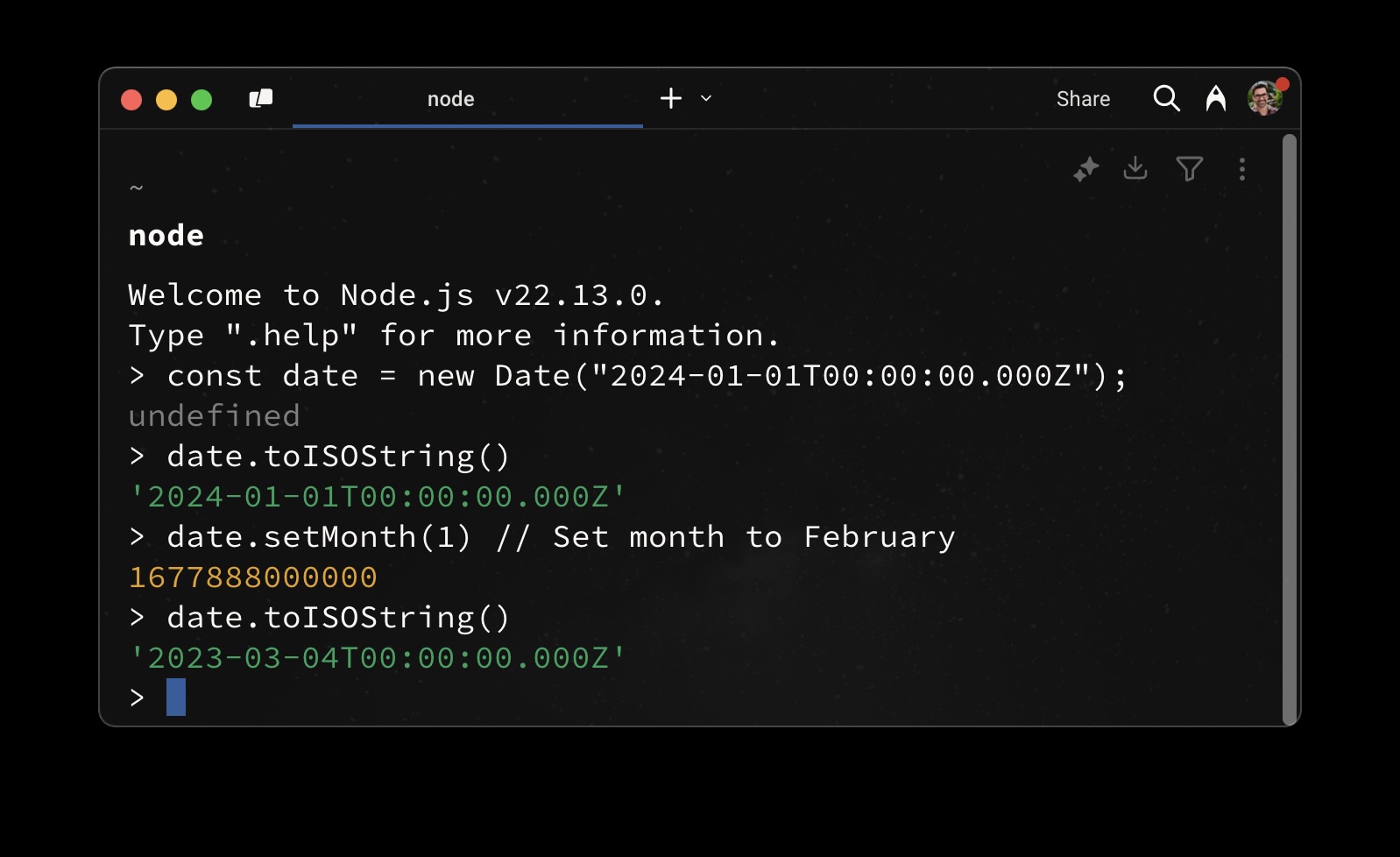Blog
-

Things you need to do for npm trusted publishing to work
After the recent supply chain attacks on the npm ecosystem, notaby the Shai-Hulud 2.0 worm, GitHub took a number of actions to shore up the security of publishing packages to hopefully avoid further attacks. One of the outcomes was that long-lived npm tokens were revoked in favour of short-lived tokens or using trusted publishing.
-

How wrong can a JavaScript Date calculation go?
The
Dateobject in JavaScript is frequently one that causes trouble. So much so, it is set to be replaced byTemporalsoon. This is the story of an issue that I faced that will be much easier to handle onceTemporalis more widespread. -
-
-
-
-
-
-
-
Subscribe
To keep up with posts on this blog, you can subscribe via RSS or follow me on DEV.